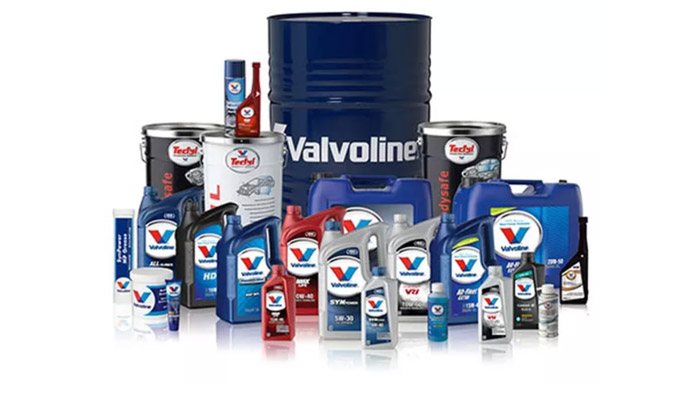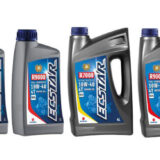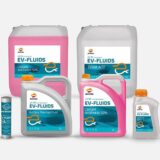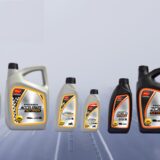
Valvoline releases product line for electric vehicles
Valvoline™, a leading worldwide supplier of premium branded lubricants and automotive services, announced last Thursday the first of its electric vehicle-specific product and service offerings with the introduction of Valvoline EV Performance Fluids. The global product line — which includes Valvoline™ EV Heat Transfer Fluid, Valvoline™ EV Drive System Fluid, Valvoline™ EV Brake Fluid and Valvoline™ EV Grease — is designed for the distinct needs of the expanding number of EVs on the road today.
Valvoline has produced widely used EV fluids for years, and added EV products and services will be unveiled in coming weeks.
“Our technical team has consistently developed products to meet the needs of changing vehicle technology,” said Heidi Matheys, Valvoline chief marketing officer. “Valvoline’s latest products — combined with upcoming news about additional EV offerings — are indicative of the commitment we have to both our customers and our 150-year tradition of innovation.”
U.S.-based EV registrations doubled from 2017 to 2018 — with an estimated 1.1 million EVs expected to be sold nationwide by 2025, according to an April 2019 IHS Markit report. Globally, electric cars on the road surpassed three million in 2017, an increase of more than 50% from the previous year, according to the International Energy Agency’s 2018 Global EV Outlook.
Valvoline will continue to evaluate product and service line extensions as technology evolves so that drivers’ needs are always being met, the company said.
“Valvoline has continually invested in products and services for vehicles of the future during our long history, and this has remained true for new EV technologies,” said Craig Moughler, Valvoline chief supply chain officer and leader of the company’s EV strategy team. “We have maintained a very close technical and commercial relationship with many of the innovative OEM’s in the EV world, ultimately leading to the launch of this new product offering that helps to ensure optimum vehicle performance as EV technologies rapidly evolve.”
Product line addresses EVs’ unique needs
Valvoline EV Performance Fluids are engineered to extend battery life and other vehicle components, contributing to a longer vehicle lifespan.
“We’ve researched, tested and proven this line’s capabilities in our own labs and using real-time data in real-world conditions,” said Fran Lockwood, Valvoline chief technology officer. “That rigorous testing process from our technical team ensures that each EV Performance Fluid meets the highest standards of this rapidly advancing category.”
Valvoline’s new product line works to solve common EV issues surrounding battery temperature variations, powertrain performance and both brake system corrosion and seal bearing failure, among others.
Valvoline EV Heat Transfer Fluids: The products are carefully designed to help the vehicle maintain the optimized operational temperature which in turn helps to achieve preferred performance and sustained battery life — including lithium batteries and aluminum components. Formulations include heat transfer fluids for Battery Applications (BA), Fuel Cell Low Conductivity Fluid (FC), Low Solids (LS) and Charging Application (CA).
Valvoline EV Drive System Fluids: To meet the evolving needs of multi-speed EV transmissions, these products provide anti-corrosion, churning loss reduction and electric motor cooling across four formulas: EV, a full synthetic; Ultra Low Viscosity, providing long vehicle range and increased efficiency for multi-speed transmissions; Ultra EV, a thermally stable fluid with superior low-temperature performance; and EV Traction, recommended for EVs with traction drive systems.
Valvoline EV Brake Fluid: The formulations provide for high boiling points (both wet and dry), noise elimination, brake fade reduction and low viscosity at low temperatures for today’s advanced Anti-lock Brake Systems (ABS), Electronic Stability Programs (ESP) and Advance Driver Assistance Systems (ADAS).
Valvoline EV Grease: These products are designed for EV motors and seal bearings to control electric conductivity.












